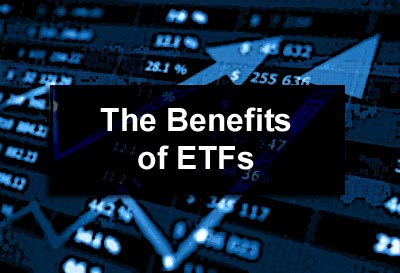Benefits of ETFs: A Comprehensive Guide
ETFs, or Exchange-Traded Funds, have gained significant popularity in recent years as a valuable investment tool. In this comprehensive guide, we will explore the various benefits of ETFs and how they can help investors achieve their financial goals.
Diversification
One of the key advantages of ETFs is their ability to provide instant diversification. By investing in an ETF, you gain exposure to a basket of different securities, such as stocks, bonds, or commodities. This diversification helps reduce the risk associated with investing in a single security, as losses in one investment can be offset by gains in others.
Lower Costs
Compared to mutual funds, ETFs generally have lower expense ratios. This is because ETFs are passively managed and aim to replicate the performance of a specific index. As a result, they have lower administrative costs and do not require active management by fund managers. Lower costs mean more of your investment returns stay in your pocket.
Liquidity
ETFs are listed and traded on exchanges, just like stocks. This means they offer high liquidity, allowing investors to buy or sell shares throughout the trading day at market prices. Unlike mutual funds, which are priced at the end of the trading day, ETFs provide the flexibility to react quickly to market movements and take advantage of short-term trading opportunities.
Transparency
ETFs provide transparency in terms of their holdings. The fund’s portfolio is disclosed on a daily badailyvestors to know exactly what securities they own. This transparency helps investors make informed decisions and understand the underlying assets of their investment.
Tax Efficiency
ETFs are structured in a way that makes them tax-efficient. Since ETFs are not actively managed, they typically generate fewer capital gains compared to mutual funds. Additionally, when an investor sells shares of an ETF, they are not subject to capital gains taxes until the sale occurs. This tax advantage can result in higher after-tax returns for investors.
Flexibility
ETFs offer investors a wide range of investment options. Whether you are interested in a specific sector, geographic region, or investment strategy, there is likely an ETF available to suit your needs. This flexibility allows investors to tailor their portfolios to their individual preferences and investment goals.
Dividends and Income
Many ETFs provide regular dividend payments to investors. These dividends can be an attractive source of income, especially for those seeking regular cash flow from their investments. Additionally, ETFs that focus on income-generating assets, such as bonds or high-dividend stocks, can provide a steady stream of income over time.

ETFs offer numerous benefits that make them an attractive investment option for both new and experienced investors. From diversification and lower costs to liquidity and tax efficiency, ETFs provide a range of advantages that can help investors achieve their financial objectives. Consider incorporating ETFs into your investment strategy to take advantage of these benefits and enhance your portfolio’s performance.
Frequently Asked Questions about the Benefits of ETFs
1. What is an ETF?
An ETF (Exchange-Traded Fund) is a type of investment fund and exchange-traded product, with shares that trade on stock exchanges.
2. How do ETFs differ from mutual funds?
ETFs differ from mutual funds in that they are traded on stock exchanges like individual stocks, while mutual funds are bought and sold at the end of the trading day at the net asset value (NAV).
3. What are the advantages of investing in ETFs?
Some benefits of ETFs include diversification, liquidity, lower costs, tax efficiency, and flexibility in trading.
4. Can ETFs be used for long-term investing?
Yes, ETFs can be used for long-term investing as they offer exposure to various asset classes and sectors, allowing investors to build a diversified portfolio over time.
5. Are ETFs suitable for beginner investors?
ETFs can be suitable for beginner investors as they provide instant diversification and are relatively easy to understand and trade.
6. What types of assets can be held in ETFs?
ETFs can hold a wide range of assets, including stocks, bonds, commodities, and even alternative investments like real estate or cryptocurrencies.
7. How can ETFs help in reducing investment risk?
By investing in a diversified ETF, investors can spread their risk across multiple securities or asset classes, reducing the impact of any single investment’s performance on their overall portfolio.
8. Do ETFs pay dividends?
Some ETFs do pay dividends, particularly those that track dividend-paying stocks or income-generating assets. However, not all ETFs distribute dividends.
9. Can ETFs be used for short-term trading?
Yes, ETFs can be used for short-term trading as they offer intraday liquidity and can be bought or sold throughout the trading day at market prices.
10. Are ETFs subject to management fees?
Yes, ETFs typically charge management fees, which cover the costs of managing the fund, but these fees are generally lower compared to actively managed mutual funds.




